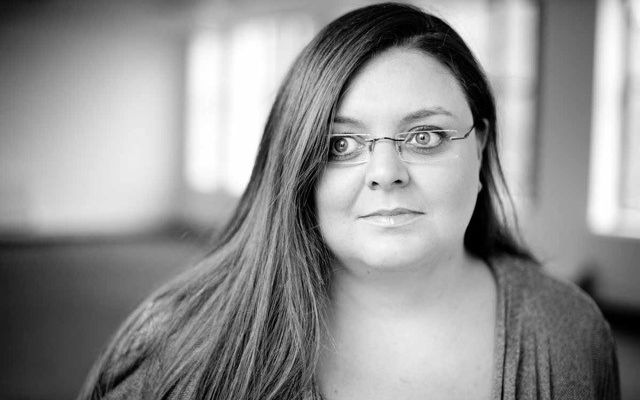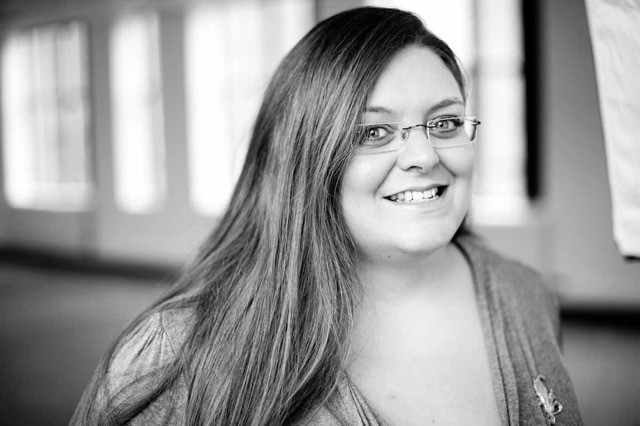Blogger Spotlight: Sarah Stimson
With nearly fifteen years of experience in PR recruitment, Sarah Stimson is an expert when it comes to knowing what employers are looking for and how to develop young talent. On both her blog and website PR Careers, Sarah shares careers advice, she is also the author of ‘How to get a job in PR’. In this spotlight, Sarah talks to us about why #diversitymatters in the PR industry, unpaid internships that disproportionately hit BME groups, challenging subconscious biases in the recruitment process and what needs to change for the comms industry to accurately reflect Britain’s diversity.
How did you get into PR recruitment? I’m not your traditional PR practitioner, I’ve done a bit of PR but mostly for myself. I started my career as a head-hunter then moved in PR recruitment, and now I do many things. For instance I do recruitment, and now I run the Taylor Bennett Foundation that helps black and ethnic minority graduates get into PR.
I believe it’s important to have diversity across all PR whether that be women, ethnicity or people with disabilities, so for the last ten years I’ve been running a ten week traineeship programme through the Taylor Bennett Foundation to help graduates gain the skills they need to enter the PR industry.
This year I also launched the website PR Careers, which again is looking at inspiring young people to go into PR as a career. The website features PR practitioners, students studying public relations, and I’ve written a few opinion pieces such as the law on unpaid PR internships.
Could you talk about the lack of diversity in the PR industry?
Fifteen per cent of this country come from BAME backgrounds and in PR that is under eight per cent, which is about half of what the national average is. That is quite a big gap in terms of practitioners coming from BAME backgrounds and there are a number of reasons for it. One is that there are some communities who don’t consider PR to be a proper job, so there needs to be some education around PR being a serious career. Traditionally there has been a large proportion of unpaid internships and that cuts out anyone who can’t afford to work for free, so the demographics you’re hitting there are disproportionately the BAME market.
When I thought about how I could tackle these issues through the Taylor Bennett Foundation I felt the best way would be to educate as many people as possible on the possibilities for BAME people who join the industry and to also provide paid learning experience for graduates to get some experience to improve their chances of getting a job or another internship in PR. Eighty three per cent of the graduates that come through the programme are now working in comms, some for agencies. For instance we’ve got some grads working at Weber Shandwick, Edelman, Red Consultancy as well as in-house like ITV, and the home office.
But before they get to that point they have to go through a very stringent recruitment process. This isn’t a tick box, we’ll take any BAME grads programme, you have to get on it by merit, it’s a really long application process because we want to test their commitment to the industry and it gives us the opportunity to check out their writing skills, they have to go to an assessment day, we give them group exercises, a presentation and interview task, then we chose the 6 graduates and they start the following week.
With the Taylor Bennett Foundation it’s about giving them practical exercises to work on so I do lots of work around employability, like CV’s and cover letters, job applications, as well as why is it important that you reply to people’s emails, how to deal with being late to work, and what should you wear to the office. These sound like really basic things, but lots of people have never worked in an office environment. We are quite fortunate in that we also have massive support from in-house comms teams and agencies who come and visit our trainees for half a day. For our young people it is a great opportunity to hear about what the agency does and it also gives them a network of people that they would never get to meet like the head of Morgan Stanley or the press secretary to the Queen. Quite often we’ll have people join us who’ll say I really want to work in fashion PR, music or something cool, and then by the end of the ten weeks they’ll say actually what I would really like to do is internal comms or corporate PR, so we really broaden their views in terms of the options available to them career-wise.
How did you get into blogging? I got into blogging because many years ago I went to a conference about social media and PR and there were 3 speakers there, Philip Young and Neville Hobson and Stuart Bruce and another guy called Tom Murphy, all of whom were prolific bloggers. At the time I knew nothing about blogging, I knew very few people who were doing it, but I remember walking away from that event feeling really inspired.
I started a very basic blog, and then a few years later I upgraded to a WordPress account. People started to ask me to write things from that. As I work with a lot of people who want to enter the industry I started thinking about doing something bigger than just the blog which is why I set up the PR careers website. The content on this website is basically what I’ve been blogging about for the last 10 years. It’s been really good for raising my own profile in the industry and to gain a certain level of recognition.
What steps should the PR industry take to tackle the issue of diversity and the gender pay gap?
When we first started the Taylor Bennett Foundation 10 years ago, no one was talking about diversity in the industry. I remember talking to people in the industry, saying that I was going to start this programme for BAME grads and everyone thought, what’s the point? But now everyone wants to hire them because we have such a problem with diversity in the industry. Things are changing. For instance there are groups like Women in PR, who put pressure on the industry to change work practices and to address issues like the gender pay gap and the fact that there are a lack of women at the top of the profession.
One of the things Women in PR and PR Week have done is set up a mentoring programme, we are going to do something similar for BAME graduates at the foundation later in the year as I think it’s really important to have role models talking about how they got in their position.
I think the question of flexibility and more agile working is definitely something that will help to address the gender imbalance in PR. In terms of ethnicity, creating more paid internships might be a solution.
Unpaid internships are unethical, and by not paying people you are limiting the kinds of people who can apply for your internships. I also think that having an open mind in terms of recruitment is very important because people do have a subconscious bias.
When you look at why there is a lack of diversity one of the things that comes up is that people tend to recruit people who look just like them – so if you have a company that is full of white blond girls, you’re just going to hire more white blonde girls. We want to encourage people to think more broadly about the skills needed to hire for and the type of people you would consider, not just looking at Russell group candidates for instance or people with 2.1 degrees.
It’s about broadening your recruitment practices. And then there’s a bigger issue around education and making sure communities are aware that the industry is open to them. One of the things we are looking at doing is improving our university outreach and talking to students about what kind of careers they want to do. It’s important to try and find ways to explain to people that they do have the skills to work in PR even if they might not have previously considered it.
From a recruitment perspective what trends do you think we will see this year in PR? Employees are asking more and more that grads come to them with content creation skills. They’ve always looked for strong writing skills, but now they are looking for more than just being able to put a press release together, but also to write decent optimised content for the web or social media to putting together infographics or video content, so content creation is definitely on the rise on the junior level.
In the recent years employees have asked practitioners to be aware of social media a lot more. Let’s say 10 years ago if I’d had asked my Bennett Foundation grads if they were on Twitter I might have got 1 out of 6 and now all of them are on Twitter, SnapChat and Instagram and all the other social media platforms, so there is more technical skills that are required.
What will be big on your blog this year? It will be all around diversity, entering the industry, and how we challenge the norms in recruitment in PR. Unpaid internships is a major issue for me. For an industry that is all about reputation it is ridiculous that there are some agencies who are paying interns nothing or just travel costs. Where are they supposed to get money to eat or pay their rent?
You might also like







Leave a Comment